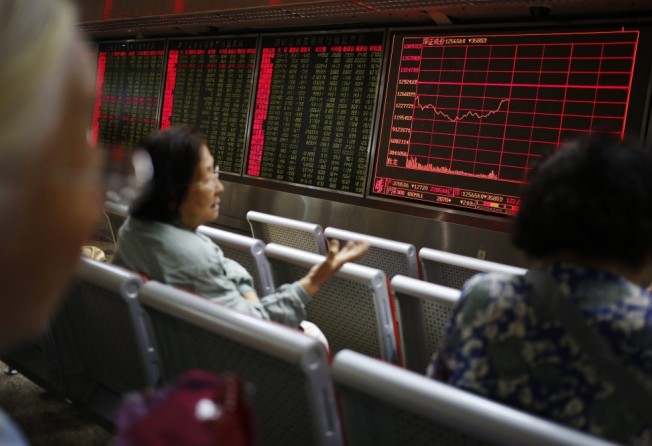Activist investors turn up the heat on Asia

In the last twelve months, activist investors, often leading hedge fund managers from the U.S., have increasingly acquired equity stakes in some of Asia’s highest profile companies to lobby for change.
This agitation has manifested itself in aggressive attempts to block mergers or in very public recommendations as to how management teams can implement changes to strategy or environment, social and governance (“ESG”) policies, for the benefit of all stakeholders.
Recent market turmoil in Hong Kong and mainland Chinese markets has underscored the importance of companies being transparent and persuasive in setting out their long term investment stories; those that don’t are not only more exposed to activism, but could run the risk of experiencing greater share price falls when markets falter.
In the U.S., where shareholder activism has surged since the Global Financial Crisis, the likes of Carl Icahn, David Einhorn, Bill Ackman and Dan Loeb have achieved celebrity status. The world’s leading endowments, family offices and sovereign wealth funds can now be counted as their clients. Globally these activists are being taken seriously; it is time for management teams in Asia to follow suit.
Historically, Asian corporates have perceived activism as a far-flung US problem. The prevalence of family-controlled listed companies, shareholder unwillingness to challenge management teams and a cultural etiquette that discourages public confrontation have resulted in a dearth of shareholder activism. However, profound change is afoot: recent actions taken against Asian corporate heavyweights such as Samsung Group and Bank of East Asia by Elliott Associates, and Fanuc by Third Point, have all raised eyebrows. Other institutions, including pension and sovereign funds, have also joined hedge funds in voicing their opinions, particularly on governance issues.
Simultaneously, governments and regulators in Asia are in the early stages of reshaping the corporate and investment landscape, as evidenced by the recently implemented Japanese Corporate Governance Code and Hong Kong’s Securities & Future Commission’s consultation paper on the Principles of Responsible Ownership. These developments could signal a more widespread adoption of international best practices in governance and investor engagement.
Asian management teams need to prepare for the shifting landscape and reset their perceptions of activists. Activists are not Gordon Gecko-type corporate raiders, but seasoned investors who can often assist companies in unlocking value and driving growth. They are more than willing to play the long game and tackle both small and large companies. They are also becoming skilled and proactive communicators: engaging with local and international media to build credibility and lobbying other investors to join their campaigns.
In Hong Kong, in particular, they are cognisant of the city’s unique retail investor dynamic, and are increasingly developing a narrative that resonates with local audiences. This includes purposely speaking up for minority shareholders and about the value their work can add to capital markets. In Japan, they are embracing the Stewardship Code and have softened their rhetoric in line with cultural sensitivities – perhaps best exemplified by Dan Loeb, who has shown restraint in his dealings with Fanuc and Sony.
For Asian corporates, it is critical to recognise that there is no silver bullet in dealing with an activist situation or short seller attack. However, most of the basic errors that targeted companies make stem from a lack of preparation. In fact, aggressors can be disarmed through a carefully executed preemptive strategy.
That could include conducting thorough and regular perception audits to understand how the market really sees a company; identifying all potential threats and vulnerabilities by re-evaluating a company’s financials, structure and policies, and; better articulating a company’s vision, strategy and ESG policies. Developing a comprehensive response plan to regain control of the agenda in the event of an attack is essential, as is a better execution of the basics, including more sophisticated and interactive investor and media relations.
However aggrieved management teams may feel by an activist intervention, engaging in a constructive and polite dialogue, privately and publicly, is imperative.
The activist or short seller is likely to have spent hundreds of hours preparing its arguments and to have years of experience in activist campaigning. Simply dismissing their assertions with a standard threat of legal action is unlikely to dissuade them or pacify a nervous market. Neither is getting involved in a war of words. Instead, ensuring messages are positive, unemotive and consistent is a must. Finally, corporates need to understand the activist they are dealing with – their approach, style, track record and motivation, and how this information can be used to a corporate’s advantage when talking to the media and the market.
While more than three quarters of all activism remains focused in the U.S., and Asia is very much a nascent market, the winds of change are beginning to blow. Scrutiny of listed stocks has reached unprecedented levels as activists and short sellers turn up the heat; markets look to wheedle out corrupt practices; regulators put in place frameworks to improve standards, and; influential local media sit poised to enter the fray if activists engage them properly.
The time has come for Asia corporates to seize the initiative.
(The author is a Principal at global consultancy firm Finsbury in Hong Kong)